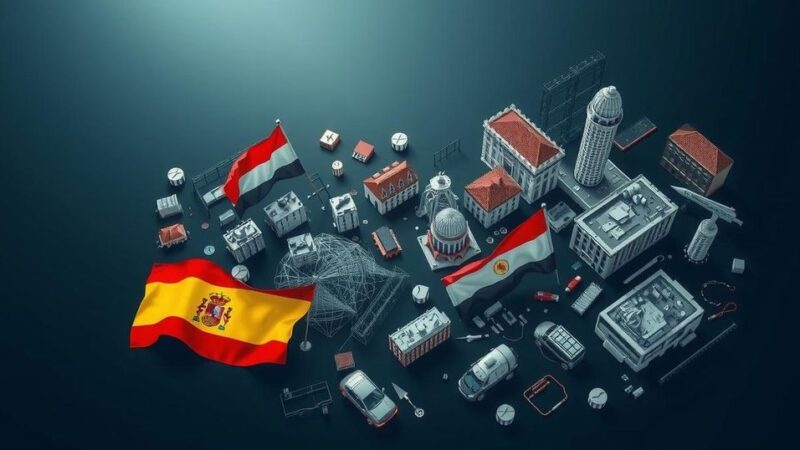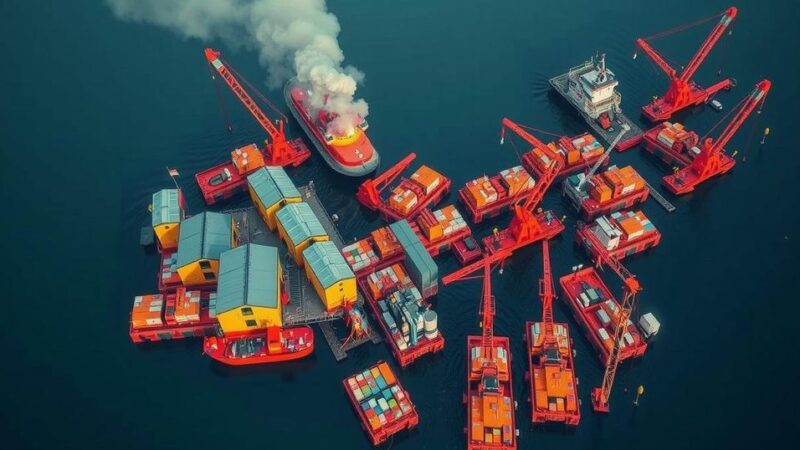In August 2023, the Lobito Atlantic Railway successfully shipped copper from the DRC to the U.S., marking a significant milestone for the Lobito Corridor initiative. Supported by U.S. and European financing, the project aims to enhance transport infrastructure, creating efficient trade routes for critical minerals. Future expansions may improve economic connections throughout southern Africa, although concerns regarding local benefits persist.
In August 2023, a significant development occurred when the Lobito Atlantic Railway facilitated its inaugural shipment of copper from the Democratic Republic of Congo (DRC) to the United States. This marks a pivotal moment for the Lobito Corridor, an initiative supported by the United States and Europe aimed at establishing an efficient transportation network connecting Africa’s mineral-rich lands to the Port of Lobito on the western coast of Angola for mineral exports. The copper shipment was transported over 1,300 kilometers of rail in just six days, a substantial time saving compared to road transport. The momentum behind the Lobito Corridor arises amidst intense competition for critical minerals such as copper, lithium, and cobalt between major global powers, particularly China and the United States. The Lobito Atlantic Railway (LAR), a consortium that resumed railway operations in January, is investing $250 million to enhance transportation infrastructure, expand its fleet, and revitalize rail lines, emphasizing the project’s significance in the global minerals market. Historically, China’s Belt and Road Initiative has provided substantial funding for transportation and infrastructure projects across many developing nations, including refurbishing Angola’s aging railway systems. However, the U.S. has taken proactive steps in this emerging landscape, including launching the Partnership for Global Infrastructure and Investment (PGI) in 2022 with its G7 allies. This initiative aims to mobilize $600 billion in global financing by 2027, with the Lobito Corridor being a flagship project under this agenda. As stated by President Joe Biden, “This first-of-its-kind project is the biggest U.S. rail investment in Africa ever.” Currently, the majority of minerals exported from the Port of Lobito are headed to Asia, although there are hopes for a shift towards increased trade with the United States and Europe, especially with ongoing investments in both the port and railway infrastructure. Future plans include extending the railway an additional 800 kilometers into Zambia, with potential aspirations to connect to the Indian Ocean in Tanzania. This initiative is vital for enhancing the economic prospects of Angola, the DRC, and Zambia, countries with high poverty rates. Despite criticisms that the focus on extracting raw materials may limit local economic benefits, proponents highlight expected job creation and improved access to important trade routes that could stimulate various sectors of the economy. According to Francisco Franca, CEO of LAR, “Lobito Corridor is not just a railway line, but it is the economic development along the corridor.” In summary, the revitalization of the Lobito Corridor stands to significantly foster regional economic development and transform logistics within Angola and its neighboring nations. Through substantial investments coupled with international collaboration, this initiative aspires to optimize mineral exports while potentially diversifying economic benefits within the participating countries, paving the way towards sustainable growth and improved living standards in the region.
The Lobito Corridor represents a renewed commitment to developing transportation infrastructures that link mineral-rich regions of Africa to global markets. This corridor aims to facilitate efficient export routes through the rejuvenation of existing railways and construction of new infrastructures. Given the increasing global demand for critical minerals driven by advancements in technology and electric vehicle production, the initiative holds strategic importance in the competition between major powers aiming to dominate the minerals market.
The Lobito Corridor initiative is poised to unlock significant economic potential through enhanced transport links for critical mineral exports from Africa to global markets. While challenges remain regarding local benefits, the expected infrastructure improvements and increased trade routes could catalyze economic activities across Angola, the DRC, and Zambia. With substantial investments from the United States and collaborative efforts to bolster trade, the Lobito Corridor could serve as a transformative force for regional development and international trade.
Original Source: www.cnn.com






